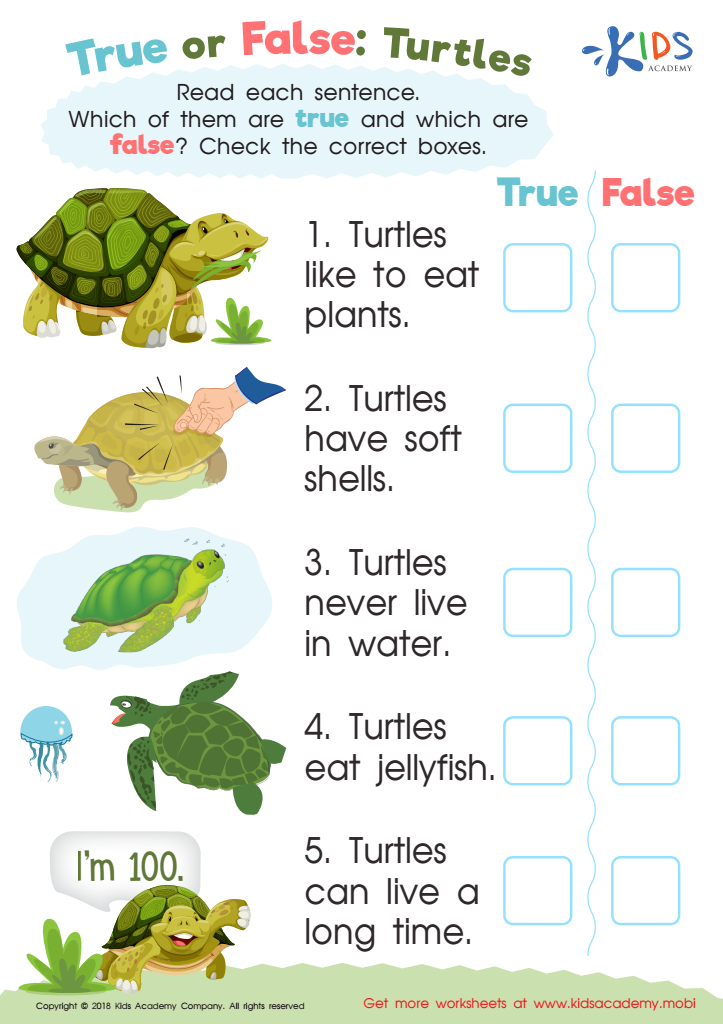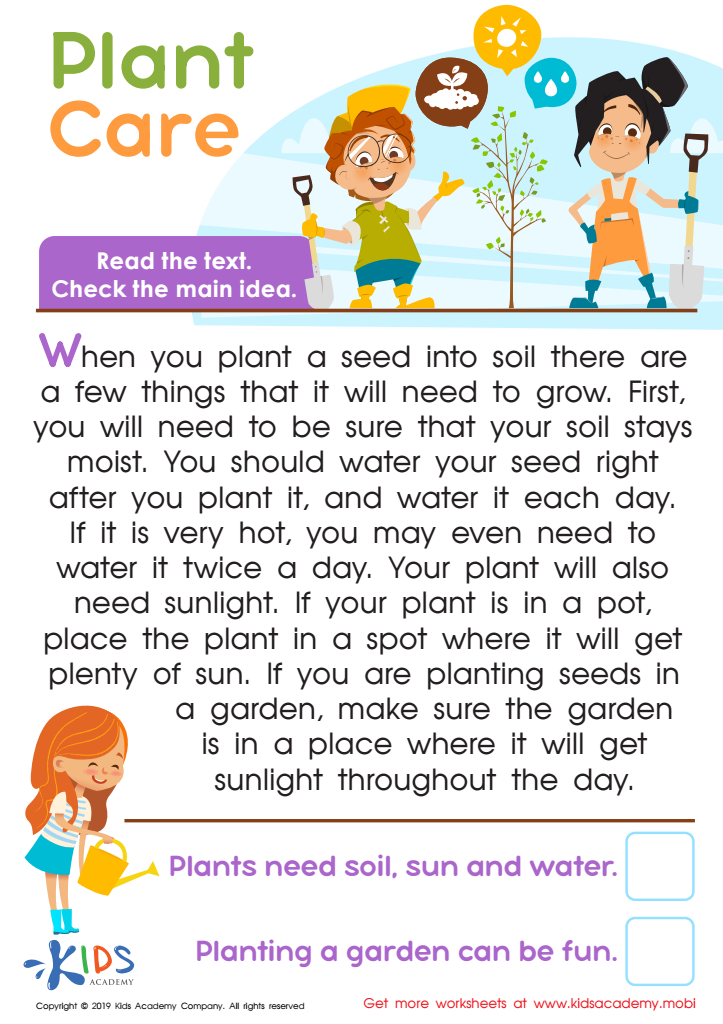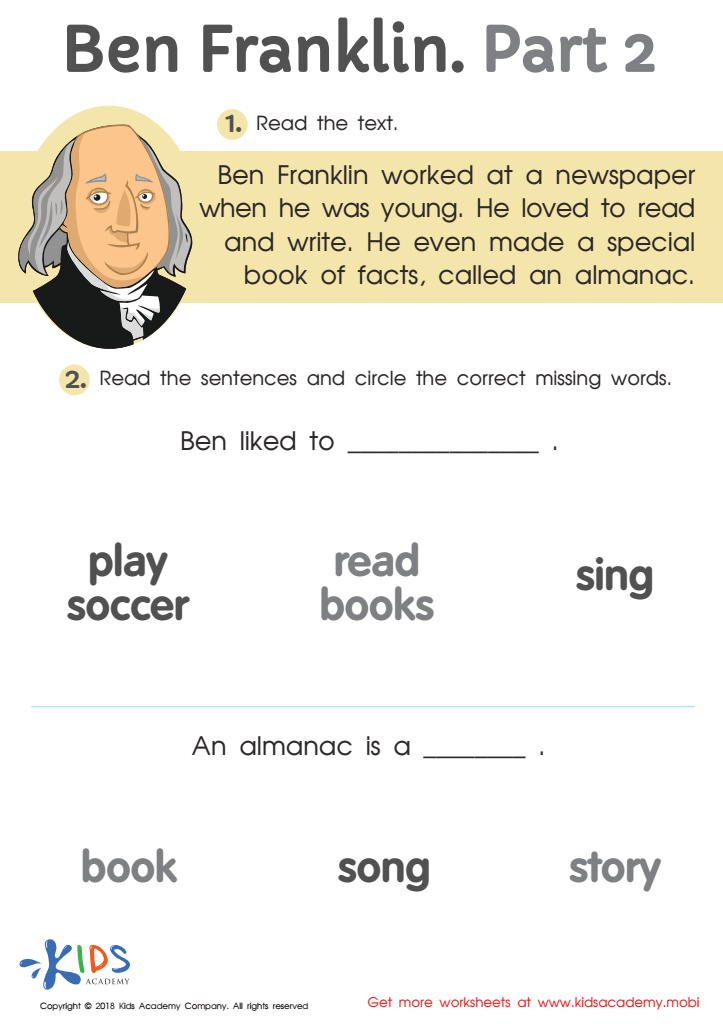Comprehension skills Reading Non-Fiction Worksheets for Ages 7-8
4 filtered results
-
From - To
Enhance your child's reading abilities with our engaging Non-Fiction Comprehension Skills Worksheets designed specifically for ages 7-8. These worksheets focus on key skills such as identifying main ideas, summarizing content, and interpreting information from various texts. Each activity encourages critical thinking and helps young learners gain a deeper understanding of non-fiction topics. With colorful illustrations and age-appropriate content, these worksheets make learning enjoyable while fostering a love for reading. Perfect for both classroom and home use, our resources are ideal for reinforcing comprehension skills in an interactive and fun way. Start your journey to better reading comprehension today!


True or False: Turtles Worksheet


Benjamin Franklin Worksheet


Plant Care Worksheet


Ben Franklin Part 2 Worksheet
Comprehension skills in reading non-fiction are crucial for children aged 7-8, as they form the foundation for lifelong learning and critical thinking. At this developmental stage, children are transitioning from learning to read to reading to learn. Mastering comprehension in non-fiction allows them to extract valuable information, understand various topics, and develop a curious mindset about the world around them.
Parents and teachers should prioritize these skills because non-fiction texts—like biographies, scientific articles, and informational books—are integral to curriculum standards and everyday life. Comprehending non-fiction fosters analytical skills, prompting children to evaluate facts, make connections, and form informed opinions. It helps them understand and navigate complex concepts, which is essential as subjects broaden in subsequent grades.
Furthermore, strong comprehension skills empower children to engage in discussion about real-world issues, cultivating their ability to articulate thoughts and ask questions. Encouraging comprehension through activity, such as summarizing information and discussing its relevance, enhances critical thinking. Overall, nurturing these skills nurtures informed, independent learners, setting them on a path for academic success and active, engaged citizenship. As such, the role of parents and teachers in reinforcing these skills is vital for holistic development.
 Assign to My Students
Assign to My Students





















